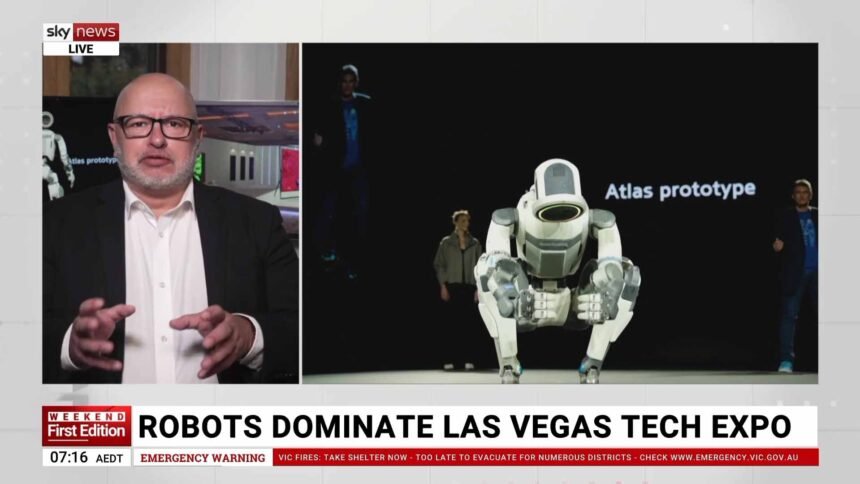In Sunday’s segment on Sky News Australia (Weekend Edition with Tim Gilbert) we took at Telstra’s release of five years of real-world testing data on 5G safety. Electromagnetic energy levels were found to be around 1000 times below the safety limits. Telstra tested 5G in real world settings where consumers are using it every day, such as in cafes, shopping precincts, sports fields, schools, CBDs, residential streets, as well as inside homes and apartments. Testing also included EME (Electromagnetic Energy levels) measurements across a number of distances – for example, from directly opposite a 5G site, to measurements in the next suburb, and also testing while running the 5G network at high capacity. Overall, throughout testing, 5G EME levels (under high capacity) are similar to those produced by the existing 3G and 4G technology. However, 5G is far more efficient, providing faster connections and greater capacity at these similar EME levels.
Finding 1: 5G EME levels 1000 times below safety limits
Finding 2: 5G EME levels are similar to 3G and 4G (but 5G is also more efficient)
INSTAGRAM ADDS NEW FEATURE TO BATTLE CYBERBULLYING
Instagram has enhanced its blocking feature. Now, when you block someone, you’ll have the option to block other accounts they may already have, making it more difficult for them to interact with you again on Instagram. Many bullies or trolls create multiple accounts so this is an attempt to stamp that out.
There are also improvements to Hidden Words to protect people from seeing scammy message requests or offensive stories replies.
Expanded use of nudges to encourage more people to pause and reflect before they say something that could be hurtful in comments or message requests.
NEW ROBOTICS COMPANY USING IMITATION TO TRAIN ROBOTS
Eventually robots will be able to watch a human do a task – repeat it – with no coding knowledge required.
Ally Robotics is rapidly making a name for itself in robotics. By making the programming task simple – no coding – it opens the door for any business to use robots. It’s starting with the food/service industry. An industry struggling with labour. The robot arm can wear different skins to suit the job. A recent survey for Nala Robotics found up to 58% of Americans have either eaten food prepared by a robot or would be willing to do so.
Robots are improving by the day. Cassie was invented at the Oregon State University College of Engineering and produced by Agility Robotics. Cassie set a Guinness World Record for the fastest 100 metre by a bipedal robot.
An impressive 24.73 seconds.





